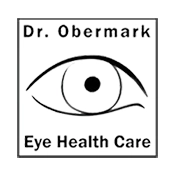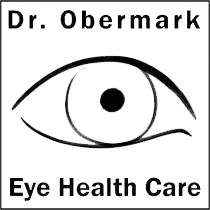Macular Degeneration Specialist

If you or someone you care about is affected by macular degeneration in Poplar Bluff MO and Sikeston MO, it’s critical to consult an experienced eye care professional at Dr. Obermark Eye Health Care. Macular degeneration is a progressive condition that can significantly impair central vision, making daily tasks more difficult. As the leading cause of severe vision loss in adults over 50, this condition affects millions across the United States.
What Is Macular Degeneration?
Macular degeneration is a chronic retinal disease that targets the macula—the part of the retina responsible for central vision and fine detail. This condition leads to the gradual or sudden loss of central sight, affecting activities such as reading, driving, and facial recognition. While peripheral vision often remains intact, central vision can become blurry, distorted, or completely lost in advanced stages.
There are two primary forms of macular degeneration:
- Dry Macular Degeneration (Atrophic)
This is the more common form, responsible for approximately 80–90% of cases. It involves thinning of macular tissue and the presence of small yellow deposits under the retina known as drusen. Vision loss progresses slowly over time and often affects both eyes. - Wet Macular Degeneration (Neovascular)
Though less common, this type is more severe. It results from abnormal blood vessels growing beneath the retina that leak fluid or blood, damaging retinal cells. Wet AMD often leads to rapid vision loss and requires urgent treatment to minimize permanent damage.
Both forms of macular degeneration can cause symptoms like central blurring, visual distortions (such as straight lines appearing wavy), and dark or empty areas in the center of the visual field.
What Causes Macular Degeneration?
While the exact cause is still being studied, macular degeneration develops due to a combination of genetic, environmental, and lifestyle factors. It is not a normal part of aging, although age is the most prominent risk factor. The condition can affect people as young as their 40s, though the risk increases significantly after age 60.
Top Risk Factors for Macular Degeneration
Understanding the risk factors can help with prevention and early intervention:
- Age: The risk increases significantly after the age of 60
- Family History: A genetic predisposition can raise your risk
- Race: AMD is more common in Caucasian individuals
- Smoking: Significantly raises the likelihood of both developing and accelerating AMD
- Diet: Poor nutrition, particularly low intake of antioxidants and omega-3s, may contribute to disease progression
- Cardiovascular Issues: High blood pressure, cholesterol, and other circulatory problems can restrict retinal blood flow
- Sun Exposure: Extended exposure to UV light without eye protection may increase the risk
- Gender: Women may be slightly more at risk than men
- Obesity: Associated with faster disease progression
- Chronic Inflammation: Inflammatory conditions may contribute to retinal damage
How Macular Degeneration Is Diagnosed
Diagnosis begins with a thorough review of your medical history, symptoms, and a series of advanced diagnostic tests to evaluate retinal health. We use modern technology to detect even early-stage signs of macular degeneration.
Diagnostic Tests May Include:
- Visual Acuity Test: Measures your ability to see details at near and far distances
- Dilated Eye Exam: Allows a comprehensive view of the retina and macula
- Optical Coherence Tomography (OCT): Provides high-resolution images of retinal layers to detect thinning, swelling, or fluid buildup
- Fluorescein Angiography: Uses a contrast dye and imaging to detect abnormal blood vessels in wet AMD
- Amsler Grid Test: A simple chart that helps monitor vision changes and detect distortions in straight lines
Routine exams and early screenings are essential for patients with risk factors, even before symptoms appear.
Types of Macular Degeneration: Dry vs. Wet AMD
Dry Macular Degeneration
- Slow progression
- Accumulation of drusen
- Thinning of retinal layers
- Blurred or distorted central vision
- No definitive cure, but supplements and dietary adjustments may slow progression
Wet Macular Degeneration
- Rapid onset and progression
- Leaking or bleeding from abnormal blood vessels
- Sudden vision loss or distortion
- Treatable with injections and laser therapy
- Requires urgent medical intervention
Treatment Options for Macular Degeneration
While there is no cure for AMD, various treatments are available to manage symptoms, preserve remaining vision, and slow the disease's progression.
Treatments for Dry AMD
- AREDS2 Supplements: A specific combination of vitamins and minerals shown to slow progression in intermediate and advanced cases
- Nutritional Adjustments: A diet rich in green leafy vegetables, omega-3 fatty acids, and antioxidants may be protective
- Lifestyle Modifications: Smoking cessation, weight management, and UV protection
- Vision Aids: Magnifiers and special lighting tools can support daily tasks
Treatments for Wet AMD
- Anti-VEGF Injections: These drugs (e.g., Eylea, Lucentis, Avastin) help inhibit the formation of abnormal blood vessels and reduce leakage
- Photodynamic Therapy (PDT): Combines medication with laser light to close off abnormal vessels
- Thermal Laser Therapy: A more traditional method that uses heat to seal off problematic blood vessels (less commonly used today due to advances in injection therapy)
Emerging Therapies
Ongoing clinical trials and research are investigating gene therapy, stem cell approaches, and advanced drug delivery systems that may revolutionize AMD treatment in the future.
Proactive Steps to Preserve Vision
Even if you're not experiencing symptoms, taking action early can significantly impact long-term visual outcomes. Here’s how:
Schedule Regular Eye Exams: Especially if you're over 50 or have risk factors
Use an Amsler Grid at Home: Monitor subtle changes in vision and report them immediately
Follow a Healthy Lifestyle: Prioritize nutrition, physical activity, and protective eyewear
Stay Informed: Advances in treatment continue to evolve—your provider can help guide next steps
Protect Your Vision—Book a Macular Evaluation Today
Macular degeneration may be a serious condition, but early diagnosis and consistent care can help preserve your vision and your quality of life. At Dr. Obermark Eye Health Care, our team of eye care professionals is dedicated to providing the most advanced diagnostic tools, personalized treatment strategies, and supportive care to help you manage this condition confidently.
Whether you’re noticing symptoms of vision loss or are at higher risk due to age or family history, don’t wait. Proactive management is your best defense against further vision deterioration.
Contact one of our locations in Poplar Bluff MO and Sikeston MO today to schedule a comprehensive eye exam. We’re here to answer your questions, offer expert guidance, and support your eye health every step of the way. Your vision matters—and we’re committed to helping you protect it for years to come.



